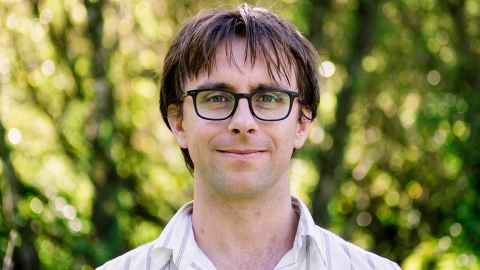Sustainability as a guiding principle
25 November 2020
Sustainable practice must guide our everyday activities and thinking. Ranked number one in the world for impact towards achieving the United Nations’ Sustainable Development Goals, the University is positioned to be a global change-maker.

SUSTAINABILITY conjures up different ideas to different people. When we have a conversation about sustainability, we could be talking about any of its varied facets such as social, environmental, economic, or cultural. A single agreed upon definition of sustainability remains elusive, and so rather than recapitulating each context for any sustainability discussion, I believe sustainability is best served by being embraced as a guiding principle.
There is already a strong precedent for the University community and wider society to adopt underpinning principles in our day-to-day thinking. The principles of the Treaty of Waitangi are a clear example of how, regardless of the context, every time we perform an action, we appraise it against the guiding principles of the Treaty.
We also increasingly see the same for principles of equity, and kindness. Many of us already implicitly use sustainability as a guiding principle in our day-to-day lives, such as when purchasing an item, we consider its manufacturing origin (social), packaging (environmental) and price (economic).
You will have seen the Sustainable Development Goals (SDGs) highlighted throughout this year’s edition of inSCight. In 2015 the United Nations identified 17 SDGs as a blueprint for peace and prosperity for people and the planet. The Times Higher Education impact rankings show how the global higher education sector is contributing to these SDGs. Since the ranking began in 2018 the University of Auckland has consistently ranked number one in the world, scoring over 90 percent for partnering with the community for the goals, and for both marine and terrestrial biodiversity.
Reflecting this academic impact, the United Nations has identified the University of Auckland as the global hub for SDG4: Education and charged the University with promoting scholarship and best practices for this goal. The University is well positioned to rise to this challenge, interpreting education as not just the courses we deliver, but the information we create and how we disseminate it as knowledge to the diverse communities we serve.
We must find ways to
promote what our world leading
researchers and
educators know, while
remaining firmly rooted
with a sense of place.
This year has been particularly challenging and has reconfigured the landscape of sustainability and its practice. COVID-19 has shifted how the world operates, in particular changing the rules on how the globalisation of education occurs.
The University has much knowledge to share with the world, but we must find ways to promote what our world-leading researchers and educators know, while remaining firmly rooted with a sense of place (tūrangawaewae) from our remote corner of the globe.
Looking forward to the next decade, the University can, and I think will, lead by example invoking sustainability as an underpinning principle in all its research, teaching and operational activities. We will also demonstrate on the global stage how a University uses education to serve the communities it partners with, in pursuit of maximising sustainable outcomes across the 17 SDGs. By doing so, the University of Auckland will truly become a world-leading University of the 21st century.
ASSOCIATE PROFESSOR JAMES RUSSELL
School of Biological Sciences and Department of Statistics
Faculty research theme leader: A Sustainable Future
Read: www.auckland.ac.nz/en/science/our-research/research-themes/a-sustainable-future.html
Visit: www.timeshighereducation.com/student/best-universities/top-universities-world-global-impact
inSCight
This article appears in the December 2020 edition of inSCight, the print magazine for Faculty of Science alumni. View more articles from inSCight.
Contact inSCight.